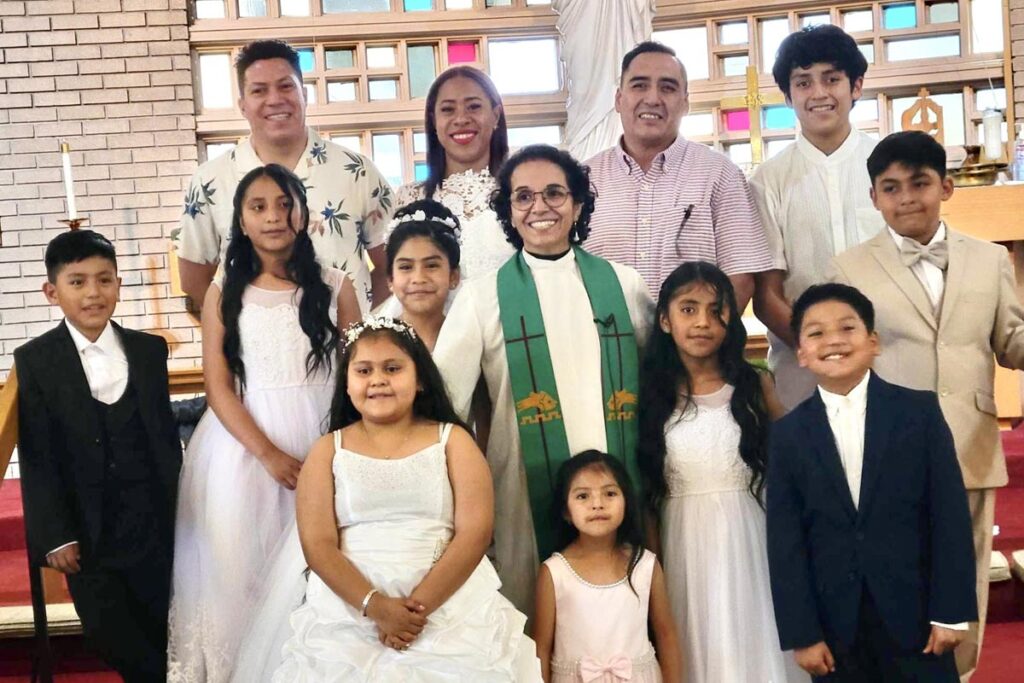Q & A with Rev. Dr. Patrica Cuyatti, ‘10
LSTC Alum and Interim Pastor at Gethsemane Lutheran Church

As part of our celebration of Latine Heritage Month, LSTC is proud to highlight the voices and stories of Latine theologians, leaders, and alumni shaping our community and the wider church. Through a series of insightful Q&A features, we explore their personal journeys, cultural influences, and the vital role of faith in their work for justice and inclusion. Join us in honoring the richness of Latine heritage as we engage in meaningful conversations that inspire reflection and action.
Can you share a bit about your cultural identity?
My cultural identity is constructed by my rich Indigenous Peruvian heritage of the Quechua and Chanka, and the Afro-Peruvian peoples. This is a political decision I adopted given the racial prejudice mixed-cultures people experienced. Colonialism and the reminiscence of it today created a huge pyramid of social strata leaving mixed and darker-skinned people at the bottom of the social structure. Along with discrimination, cultures I identify with have resisted and fought to reach higher levels of education and well-paid jobs. I do not claim any European root because it is what most people were taught while their languages, wisdom, religions, and traditions were forbidden. As a proud Quechua, I enjoy recovering the spirituality, and way of living , and practicing the little Quechua I learned from my maternal grandmother. As a proud Chanka, I have learned to resist imperial power and control, by using silence/invisibility, while affirming resilience-divinity helping to build channels of support and solidarity as my paternal grandmother taught me. As a proud African Peruvian, I have engaged in survival through the power of the voice, songs, art, etc. My mixed culture has gifted me with a lively community where leaders try to listen to people before making decisions.
What does Latine Heritage Month mean to you personally?
Latina Heritage is connected to me to the Spanish language and the celebration of the history and culture of people who migrate to the United States. I value the fact that the various Latina communities have influenced society in the US. However, there is still work to be done. This could happen by acknowledging that people from different cultural backgrounds and countries cannot be identified simply as “Latina/Latinx”. Although minorities, there is work to address rights on issues related to migration, education, jobs, violence, etc. in a country with a long migration background.
What do you think seminaries should do to support their Latine constituents?
The seminaries play a vital role in sharing knowledge(s). As a place for theological education of future leaders and ministers (Word and Sacrament/Service). The seminaries can be enriched by the multiculturality in the communities by reflecting and engaging the good news already lived there, and by affirming their spiritualities and theologies.
What’s your favorite cultural dish?
I do not have a specific dish. I love the Peruvian fusion which includes Mozarabs, who gifted Castillian Spaniards with rich flavors, as well as, Chinese, Japanese, and other pre-Inca cultures that have influenced our food.
Is there a particular latine tradition that you want to pass down to the next generation?
La Fiesta is a way of living together celebrating amidst struggles and during achievements.